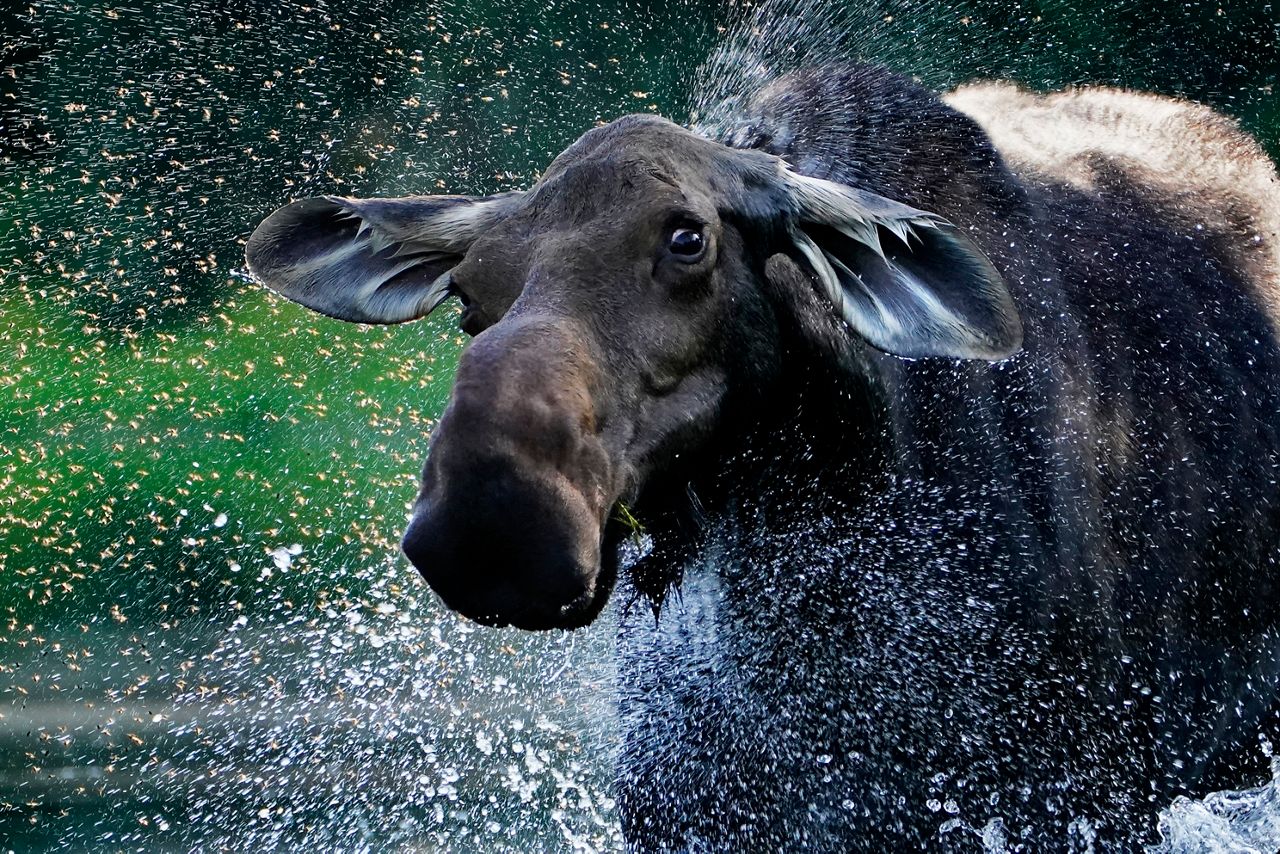As the state prepares to dole out hunting permits to the winners of the 2023 moose lottery, wildlife officials said hunting is one way to help control a tiny threat to these large animals: Winter ticks.
The arachnids, like the more commonly-known deer ticks, live off the blood of larger animals, and in recent years they have become the biggest threat to the state’s moose population, according to Lee Kantar, a moose biologist with the Maine Department of Inland Fisheries & Wildlife.
The exact impact on Maine’s moose population is difficult to say, as the most recent estimates, somewhere around 79,000, date back to 2012. Kantar said, however, that some cows have been collared and monitored for studies by universities and wildlife officials.
One region in western Maine, Kantar said, during a recent seven-year period lost roughly half of its calves each winter.
“We lose a lot of moose calves before their first birthday because of winter ticks,” he said.
The problem, Kantar said, is that the ticks use the moose as a breeding ground.
“A moose doesn’t get one or two winter ticks on it. It gets tens of thousands of winter ticks,” he said.
Officials are tracking the issue as part of an ongoing 10-year plan to monitor the habitats and behavior of large game animals in the state, including moose, deer, bears and turkeys.
“Really what we’re trying to deal with is what we consider moose health,” Kantar said.
Winter ticks have been around for decades, Kantar said, but as the moose population itself began to climb in the 1980s and 1990s, so did the winter tick populations.
Today, he said, the ticks are the biggest threat to moose health statewide.
Kantar said state officials and conservationists want to improve moose health overall, but culling the moose population, at least in some parts of the state, is one of the easiest ways to deal with the problem. Insecticides, he said, are not a practical solution.
“We’re talking about a wild animal that has a 10-12-mile home range,” he said. “You can’t just put pesticide on the back of a moose. You can’t just go out there and spray the woodlands. That’s 16,000 square miles of private land.”
Hence the lottery system. Kantar said the state is offering 4,105 permits for 2023, compared to the 4,180 issued last year. The number, he said, varies due to factors such as moose population estimates in specific regions.
The small number of permits doesn’t deter applicants. Kantar said in a typical year the state receives more than 55,000 applications. He said properly-managed hunting is a valuable tool to help control the winter ticks.
“You don’t want the ticks to eat your moose,” he said. “If that’s going to happen, you might as well let the hunters do it.”
For those still looking to apply, there’s still time. The state will continue to take applications online at mefishwildlife.com until 11:59 p.m. Monday, May 15. Officials will conduct the permit drawings on Saturday, June 10, at Mill Park in Augusta.





